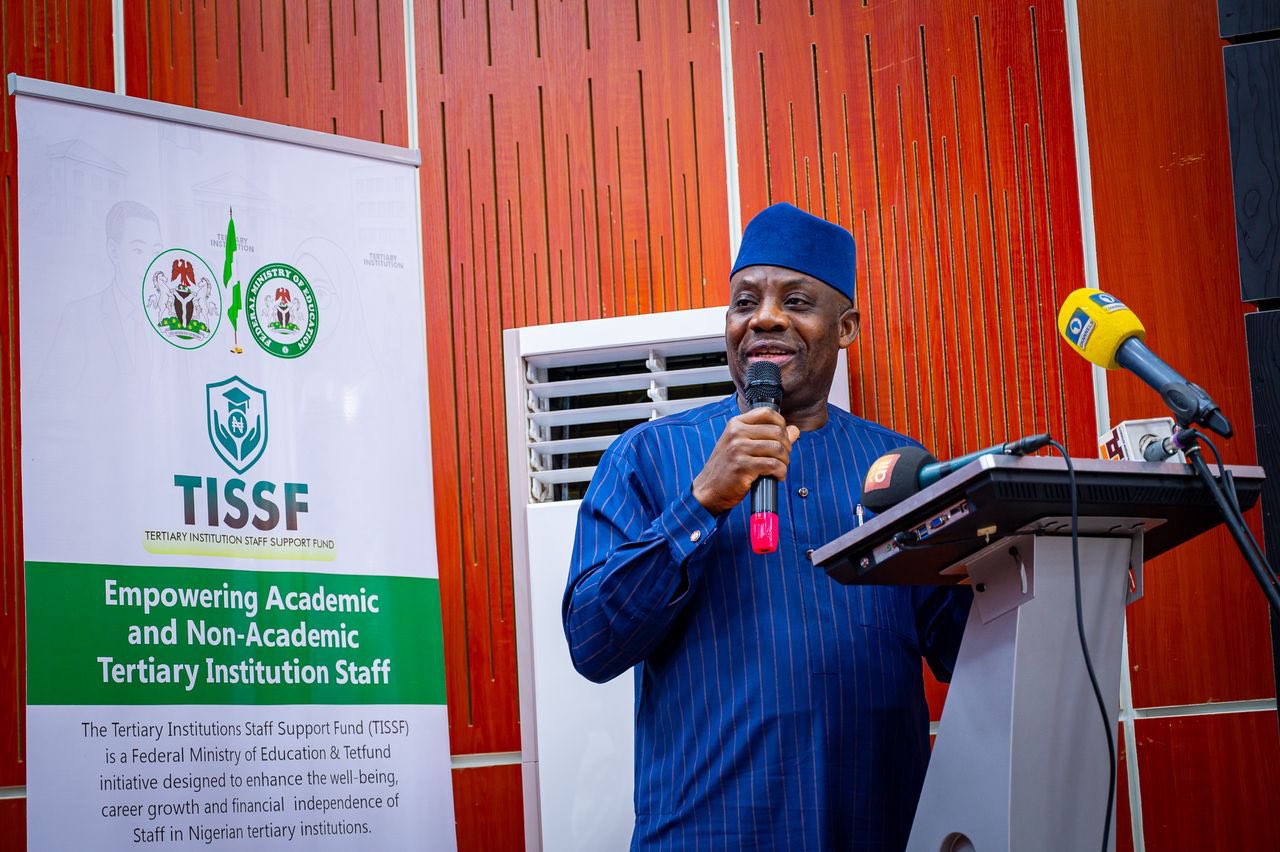In a bold and transformative step towards modernising Nigeria’s education system, the Federal Government has launched a groundbreaking initiative designed to empower teachers with digital tools, mobile devices, and free data access. The new scheme, introduced through the Federal Ministry of Education (FME), marks a significant milestone in the government’s ongoing effort to enhance teacher capacity, promote digital inclusion, and strengthen the implementation of the National Digital Learning Policy (NDLP).
The pilot phase of this ambitious programme will provide subsidized mobile devices and zero-rated data access to 8,000 teachers across Nigeria’s six geopolitical zones. This move aims to bridge the widening digital gap in the education sector and equip teachers with the tools necessary to deliver 21st-century learning experiences effectively.
A New Era for Teachers in Nigeria
The Federal Government, under the leadership of the Honourable Minister of Education, Dr. Tunji Alausa, officially unveiled the scheme with the vision of transforming the Nigerian education landscape through digital empowerment. The initiative was launched as part of the Education Public-Private Partnership (ePPP) framework and in collaboration with Partnership for Learning for All in Nigeria (PLANE), a UK-funded education support programme.
According to the Ministry, the initiative seeks not only to provide teachers with digital devices but also to ensure continuous access to e-learning resources and platforms. The partnership with leading telecom providers will allow teachers to enjoy free or zero-rated data access to government-approved educational platforms, enabling them to download materials, attend virtual training, and participate in online professional development without data cost barriers.
Pilot Phase: 8,000 Teachers to Benefit Nationwide
The initial rollout of the scheme will target 8,000 selected teachers across Nigeria’s geopolitical zones between December 2025 and July 2026. This first phase will serve as a testing ground for the nationwide deployment of the programme.
A Ministerial Implementation Committee, comprising representatives from the Federal Ministry of Education, the Teachers Registration Council of Nigeria (TRCN), telecom operators, and various EdTech organisations, will supervise the execution of the pilot phase. The committee will also be responsible for verifying participating schools, monitoring implementation, and compiling a detailed impact report that will guide the nationwide scale-up.
Programme Breakdown
| Category | Details |
|---|---|
| Beneficiaries | 8,000 teachers selected across Nigeria’s six geopolitical zones |
| Duration | December 2025 – July 2026 |
| Components | Subsidised mobile devices and zero-rated (free) data access |
| Supervising Committee | FME, TRCN, Telecom Operators, and EdTech partners |
| Main Objective | To strengthen teacher capacity through digital inclusion and online resource access |
| Policy Alignment | National Digital Learning Policy (NDLP) and Education Public-Private Partnership (ePPP) framework |
| Collaborating Partner | Partnership for Learning for All in Nigeria (PLANE), supported by the UK government |
Objectives of the Initiative
The launch of this digital empowerment programme is guided by several key objectives, including:
- Bridging the Digital Divide: Ensuring teachers in both urban and rural areas have equal access to digital tools and learning resources.
- Enhancing Teaching Efficiency: Equipping teachers with devices and internet access to deliver lessons using modern methods and digital platforms.
- Strengthening Professional Development: Enabling teachers to access training materials, certification programmes, and virtual workshops seamlessly.
- Promoting Digital Literacy: Building the capacity of teachers to use technology confidently in classrooms.
- Supporting the National Digital Learning Policy (NDLP): Ensuring alignment with Nigeria’s broader goal of achieving inclusive, technology-driven education by 2030.
Government’s Commitment to Quality Education
During the official launch, the Minister of Education, Dr. Tunji Alausa, reaffirmed the Federal Government’s commitment to improving teacher welfare, professional competence, and access to technology. He noted that the education sector can only thrive when teachers — the foundation of learning — are equipped with the right tools and resources.
Dr. Alausa emphasized that the initiative would not only empower teachers but also catalyse innovation in teaching methods, ensuring students benefit from engaging and interactive learning experiences. He further highlighted the importance of collaboration between the government, private sector, and international partners to sustain the scheme beyond the pilot phase.
Empowering Teachers Beyond Devices
The programme goes beyond merely distributing mobile devices. It is strategically designed to connect teachers to a wider digital ecosystem. Beneficiaries will gain access to:
- The National E-Learning Portal, containing approved curriculum materials, interactive modules, and teaching aids.
- Online Professional Communities, where educators can share ideas, collaborate, and engage in peer-to-peer mentoring.
- Virtual Training and Development Sessions, organised periodically by the FME and TRCN.
- Monitoring and Evaluation Systems, which will help track the usage of devices, content engagement, and the overall impact on teaching quality.
This holistic approach ensures that the initiative contributes meaningfully to the long-term digital transformation of the education sector.
Expected Impact and Long-Term Benefits
If successfully implemented, this digital empowerment scheme is expected to bring far-reaching benefits to Nigeria’s education sector:
- Improved Learning Outcomes: With better-equipped teachers, students will gain from modern, interactive, and technology-driven teaching.
- Reduced Urban-Rural Education Gap: Equal access to devices and data ensures that teachers in remote areas are not left behind.
- Enhanced Teacher Motivation: Access to free data and resources boosts morale and encourages continuous learning.
- Strengthened Education Infrastructure: The initiative aligns with Nigeria’s ongoing efforts to build resilient educational systems capable of withstanding disruptions like pandemics.
- National Competitiveness: Equipping teachers digitally enhances Nigeria’s global standing in education and technological readiness.
Challenges and Considerations
While the initiative is commendable, several challenges may influence its success:
- Sustainability: Ensuring free data and device maintenance beyond the pilot phase.
- Device Quality: Providing durable, high-performance devices suitable for long-term use.
- Teacher Selection Criteria: Guaranteeing fairness and transparency in choosing beneficiaries.
- Connectivity Issues: Addressing poor network coverage in remote or rural communities.
- Monitoring & Evaluation: Effectively tracking the impact of the initiative and ensuring accountability.
The government has, however, pledged to tackle these concerns through a transparent selection process, robust partnerships, and regular progress assessments.
Public Reaction and Stakeholder Support
The scheme has been met with widespread optimism among education stakeholders. Teachers, unions, and digital education advocates have applauded the move, describing it as a step in the right direction toward building a digitally competent teaching workforce.
Several state ministries of education have also expressed readiness to partner with the Federal Government to expand the initiative within their jurisdictions, ensuring that the benefits reach the grassroots.



